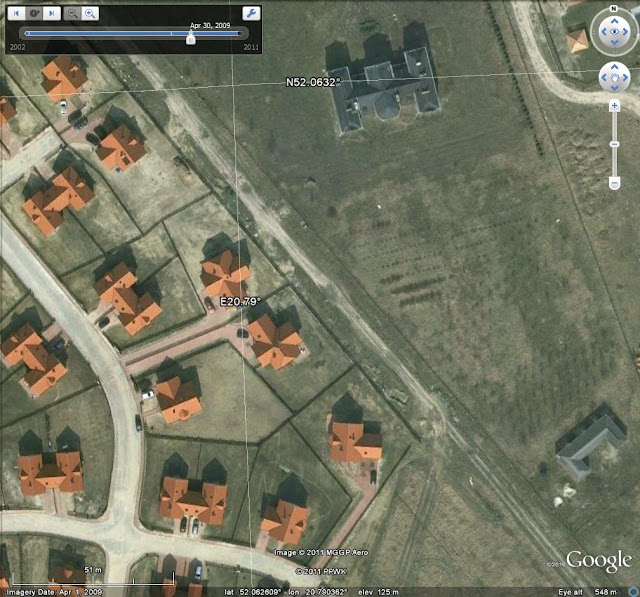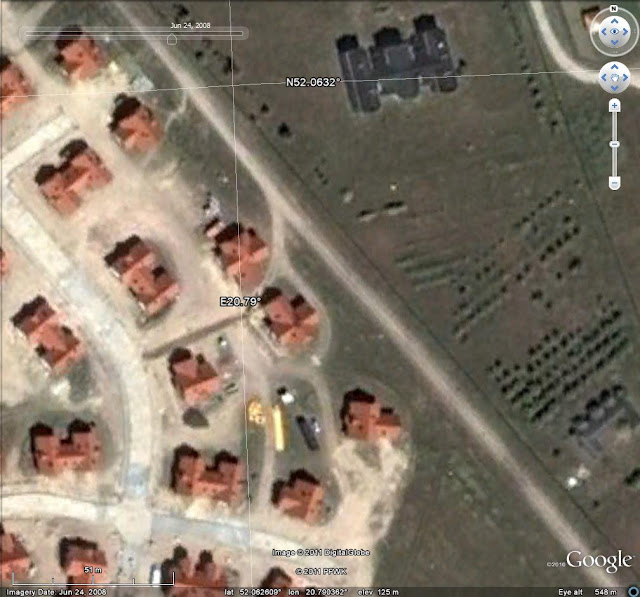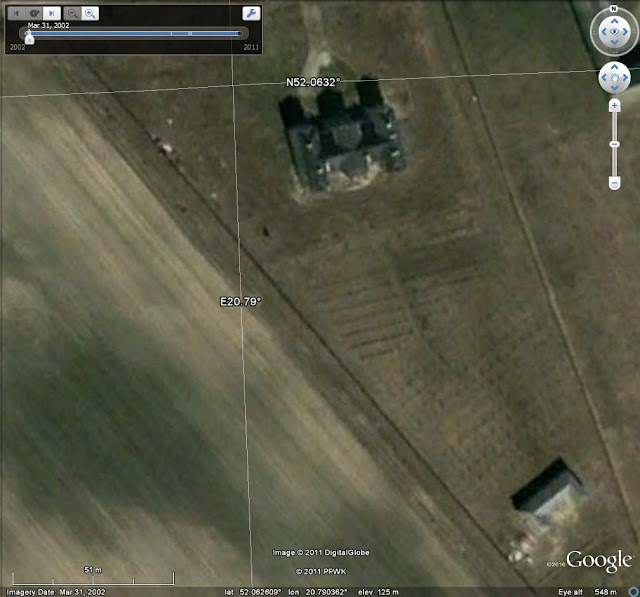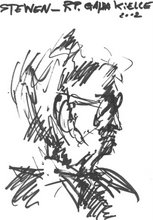I remember those South London days when I, and most people, had no concept of long distance driving. Even regularly driving to mid-Norfolk (to see my Mother) was a chore best started between 6.00 and 7.00am to reduce the two hour drive through the western side of London to the (new) M11 motorway. The roads improved slowly (with one section having its 10 year planning process) until I could do the trip in about 3 hours. The Channel to the south wasn't so much a hurdle, as an impenetrable barrier. Insular England!
Now, it's more a question along the lines of (eg last year) "will it be easier to drive to Italy rather than fly, so that we will be able to use the car when we get there?". Yes, it is. (So far) this year, It's been the long haul west.
We find the best way to do this is to stop overnight somewhere in Poland near the border with Germany. This time, it was
Pałac Magnat in Garbicz, a few kilometres off the main road, turning off at Boczów.

Staying at these places is often more a matter of general experience than of getting an enjoyable evening and a good night's rest. The Magnat is such a place. It is an 18th Century Mansion House that appears to have been planned to be redeveloped as a high quality hotel and leisure centre catering to the new international market. It never got there, however. The downstairs rooms when you enter have an attractive old palace atmosphere, but going to the upstairs bedrooms, there was a strong sense of decaying infrastructure, as shown below on the grand portico.
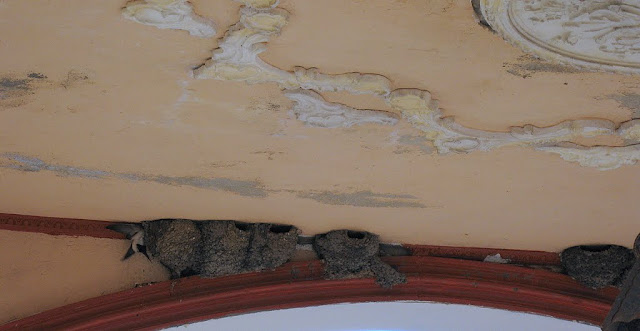
It is an end of the road place: the tarmac extends just beyond the hotel gates. The restaurant was closed when we got there because there was a wedding party, so I don't know what the cooking is like. Breakfast (an additional 20 zl cost) was plain, but acceptable, provided one was willing to wait some time for empty dishes to be replenished. Although it wasn't very expensive - 150zl for three (in two rooms rather than the expected one), it costs more than other places near the border. They don't take card payments, which left us pooling all our remaining cash.
However, for early morning risers, there is a pleasant walk by the lake (after inspecting the unfinished swimming pool). I took the eastern route, which I think is primarily used by fishing locals rather than tourists.
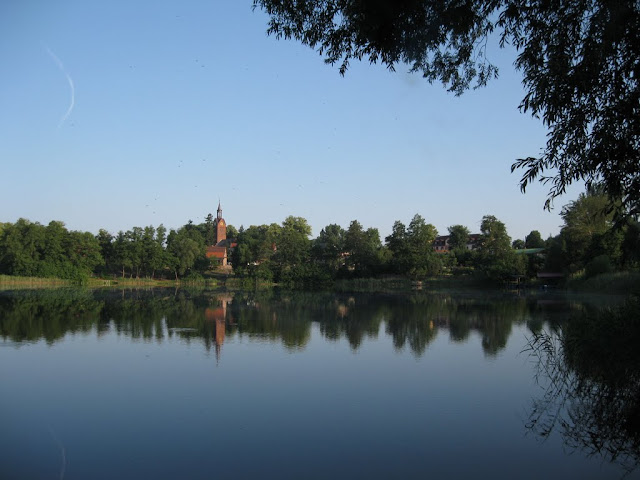
Filling up with petrol before the border is an essential routine because of Poland's low fuel cost. There was a reminder just beside the petrol station of the time when the border was a rather grotty, forced stopping place.
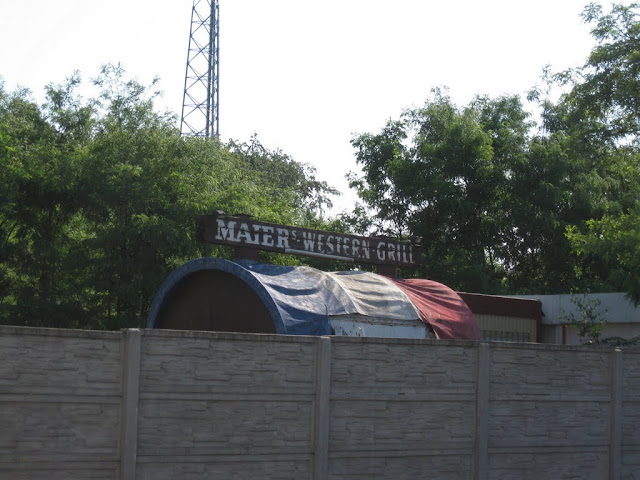
Stops on the journey are rather random, according to needs and fancies. I don't much like the German Autohof's for some reason, but Dutch motorway stops were better. There are many similarities between the Dutch and English languages, so I can only guess that this sign in the toilet had something to do with snooping your underwear.

The return journey is nearly always straight home, whether planned or not: there was no time for an overnight stay this time anyway. Once we get to Poland, we already feel at home and the extra (five or six hours) journey time is just an unfortunate technicality. However, an early stop in Poland for food and, in my case, coffee - the best in Europe for some reason, is an important part of the welcome back process. Zajazd Chrobry in Torzym is often our stopping point.
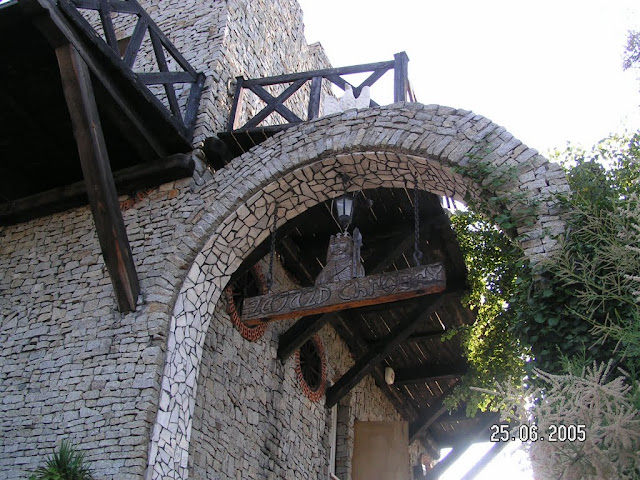
The pictures are old - from the time when we stopped there on the outward journey, but it remains much the same. The transparently fake castle effects make it very conspicuous on the road side and it's car parking facilities for coaches add to its popularity. The food is good and plentiful and service was fine for one coach plus car based customers. The arrival of several coaches can slow things down tremendously, not surprisingly. I remember the hotel rooms as being a bit sparse, but functional, which was fine. From the website, they are cheaper than the Magnat and they take card payments. There is also a money exchange.

I was looking for a bankomat - a perfect Polish word that should be adopted by the English rather than 'ATM' and other sillier descriptions (eg Hole in the Wall!). I knew there was a sign somewhere, but was getting nervous as the motorway, with its toll booths, grew closer. (They take cards, but cash is easier and there are more lanes.) I found it at Trzciel just before the motorway and just when I wanted petrol.

The petrol station is a bit old fashioned, but the petrol is fine. The bankomat, toilets, restaurant - not used by us, and even a night club are in a separate block behind the petrol station, partly hidden by lorries when we arrived.
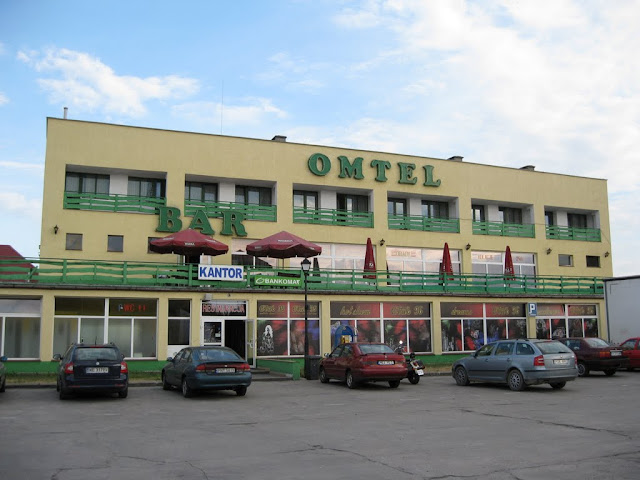
Getting to and from the motorway at the Warsaw end is made difficult by the enormous amount of road building and improvements in progress, but otherwise the journey out on a Thursday afternoon and Friday, returning on a Monday, was largely free flowing. There was, however, a large jam on Monday evening in the other, outgoing direction beyond and extending onto the motorway . I wonder whether this is a regular Monday feature following lorry movement bans on Sunday - I didn't see any sign of an accident.
15/16 hours is a silly length of time to drive, but I do manage it. However, I must compare my original English feeling that a 400km round journey was a major event, with the Polish willingness to drive several thousand kilometres - for an extended weekend break. It does leave me exhausted, though.
Recommended places to visit in North Holland are Marken,

Volendam,
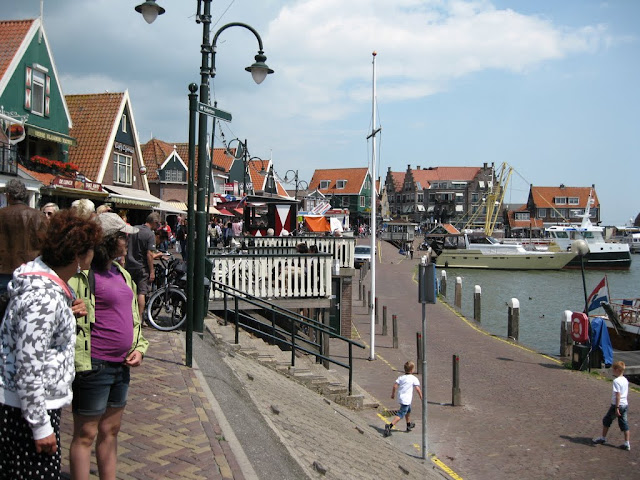
and even
Ijsselhof Holiday Park, where we stayed. There's a nice walk around the dyke.

Amsterdam is basically ... well ... boring.

If you're going from Poland, remember to take a thick jumper, jacket and something waterproof, whilst you marvel at people walking around in light summer clothing. It's cold out there, even on a sunny day, on the chilly west coast.


